- Home
- Nathaniel Hawthorne
Mosses from an Old Manse, Volume 2
Mosses from an Old Manse, Volume 2 Read online
MOSSES FROM AN OLD MANSE. BY NATHANIEL HAWTHORNE. IN TWO PARTS. PART II. NEW YORK: WILEY AND PUTNAM. 1846. Entered according to Act of Congress, in the year 1846, by WILEY & PUTNAM, In the Clerk’s Office of the District Court for the Southern District of New York. R. Craighead’s Power Press. 112 Fulton Street. T. B. Smith, Stereotyper, 216 William Street.
CONTENTS OF PART II
The New Adam and Eve…1
Egotism; or the Bosom Friend…22
The Christmas Banquet…38
Drowne’s Wooden Image…59
The Intelligence Office…74
Roger Malvin’s Burial…90
P.’S Correspondence…113
Earth’s Holocaust…133
The Old Apple Dealer…156
The Artist of the Beautiful…164
A Virtuoso’s Collection…192
MOSSES FROM AN OLD MANSE. THE NEW ADAM AND EVE.
We, who are born into the world’s artificial system, can never adequately know how little in our present state and circumstances is natural, and how much is merely the interpolation of the perverted mind and heart of man. Art has become a second and stronger Nature; she is a step-mother, whose crafty tenderness has taught us to despise the bountiful and wholesome ministrations of our true parent. It is only through the medium of the imagination that we can lessen those iron fetters, which we call truth and reality, and make ourselves even partially sensible what prisoners we are. For instance, let us conceive good Father Miller’s interpretation of the prophecies to have proved true. The Day of Doom has burst upon the globe, and swept away the whole rece of men. From cities and fields, sea-shore, and mid-land mountain region, vast continents, and even the remotest islands of the ocean—each living thing is gone. No breath of a created being disturbs this earthly atmosphere. But the abodes of man, and all that he has accomplished, the foot-prints of his wanderings, and the results of his toil, the visible symbols of his intellectual cultivation, and moral progress—in short, everything physical that can give evidence of his present position—shall remain untouched by the hand of destiny. Then, to inherit and repeople this waste and deserted earth, we will suppose a new Adam and a new Eve to have been created, in the full development of mind and heart, but with no knowledge of their predecessors, nor of the diseased circumstances that had become encrusted around them. Such a pair would at once distinguish between art and nature. Their instincts and intuitions would immediately recognize the wisdom and simplicity of the latter, while the former, with its elaborate perversities, would offer them a continual succession of puzzles.
Let us attempt, in a mood half-sportive and half-thoughtful, to track these imaginary heirs of our mortality through their first day’s experience. No longer ago than yesterday, the flame of human life was extinguished; there has been a breathless night; and now another morn approaches, expecting to find the earth no less desolate than at eventide.
It is dawn. The east puts on its immemorial blush, although no human eye is gazing at it; for all the phenomena of the natural world renew themselves, in spite of the solitude that now broods around the globe. There is still beauty of earth, sea, and sky, for beauty’s sake. But soon there are to be spectators. Just when the earliest sunshine gilds earth’s mountain tops, two beings have come into life, not in such an Eden as bloomed to welcome our first parents, but in the heart of a modern city. They find themselves in existence, and gazing into one another’s eyes. Their emotion is not astonishment; nor do they perplex themselves with efforts to discover what, and whence, and why they are. Each is satisfied to be, because the other exists likewise; and their first consciousness is of calm and mutual enjoyment, which seems not to have been the birth of that very moment, but prolonged from a past eternity. Thus content with an inner sphere which they inhabit together, it is not immediately that the outward world can obtrude itself upon their notice.
Soon, however, they feel the invincible necessity of this earthly life, and begin to make acquaintance with the objects and circumstances that surround them. Perhaps no other stride so vast remains to be taken, as when they first turn from the reality of their mutual glance, to the dreams and shadows that perplex them everywhere else.
“Sweetest Eve, where are we?” exclaims the new Adam,— for speech, or some equivalent mode of expression, is born with them, and comes just as natural as breath;—“Methinks I do not recognize this place.”
“Nor I, dear Adam,” replies the new Eve. “And what a strange place too! Let me come closer to thy side, and behold thee only; for all other sights trouble and perplex my spirit.”
“Nay, Eve,” replies Adam, who appears to have the stronger tendency towards the material world; “it were well that we gain some insight into these matters. We are in an odd situation here! Let us look about us.”
Assuredly, there are sights enough to throw the new inheritors of earth into a state of hopeless perplexity. The long lines of edifices, their windows glittering in the yellow sunrise, and the narrow street between, with its barren pavement, tracked and battered by wheels that have now rattled into an irrevocable past! The signs, with their unintelligible hieroglyphics! The squareness and ugliness, and regular or irregular deformity, of everything that meets the eye! The marks of wear and tear, and unrenewed decay, which distinguish the works of man from the growth of nature! What is there in all this, capable of the slightest significance to minds that know nothing of the artificial system which is implied in every lamp-post and each brick of the houses? Moreover, the utter loneliness and silence, in a scene that originally grew out of noise and bustle, must needs impress a feeling of desolation even upon Adam and Eve, unsuspicious as they are of the recent extinction of human existence. In a forest, solitude would be life; in the city, it is death.
The new Eve looks round with a sensation of doubt and distrust, such as a city dame, the daughter of numberless generations of citizens, might experience, if suddenly transported to the garden of Eden. At length, her downcast eye discovers a small tuft of grass, just beginning to sprout among the stones of the pavement; she eagerly grasps it, and is sensible that this little herb awakens some response within her heart. Nature finds nothing else to offer her. Adam, after staring up and down the street, without detecting a single object that his comprehension can lay hold of, finally turns his forehead to the sky. There, indeed, is something which the soul within him recognizes.
“Look up yonder, mine own Eve!” he cries; “surely we ought to dwell among those gold-tinged clouds, or in the blue depths beyond them. I know not how nor when, but evidently we have strayed away from our home; for I see nothing hereabouts that seems to belong to us.”
“Can we not ascend thither?” inquires Eve.
“Why not?” answers Adam, hopefully. “But no! Something drags us down in spite of our best efforts. Perchance we may find a path hereafter.”
In the energy of new life, it appears no such impracticable feat to climb into the sky! But they have already received a woful lesson, which may finally go far towards reducing them to the level of the departed race, when they acknowledge the necessity of keeping the beaten track of earth. They now set forth on a ramble through the city, in the hope of making their escape from this uncongenial sphere. Already, in the fresh elasticity of their spirits they have found the idea of weariness. We will watch them as they enter some of the shops, and public or private edifices; for every door, whether of alderman or beggar, church or hall of state, has been flung wide open by the same agency that swept away the inmates.
It so happens—and not unluckily for an Adam and Eve who are still in the costume that might better have befitted Eden—it so happens, that their first visit is to a fashion
able dry-good store. No courteous and importunate attendants hasten to receive their orders; no throng of ladies are tossing over the rich Parisian fabrics. All is deserted; trade is at a stand-still; and not even an echo of the national watchword—“Go ahead!”—disturbs the quiet of the new customers. But specimens of the latest earthly fashions, silks of every shade, and whatever is most delicate or splendid for the decoration of the human form, lie scattered around, profusely as bright autumnal leaves in a forest. Adam looks at a few of the articles, but throws them carelessly aside, with whatever exclamation may correspond to “Pish!” or “Pshaw!” in the new vocabulary of nature. Eve, however,— be it said without offence to her native modesty,—examines these treasures of her sex with somewhat livelier interest. A pair of corsets chance to lie upon the counter; she inspects them curiously, but knows not what to make of them. Then she handles a fashionable silk with dim yearnings—thoughts that wander hither and thither—instincts groping in the dark.
“On the whole, I do not like it,” she observes, laying the glossy fabric upon the counter. “But, Adam, it is very strange! What can these things mean? Surely I ought to know—yet they put me in a perfect maze!”
“Pooh! my dear Eve, why trouble thy little head about such nonsense?” cries Adam, in a fit of impatience. “Let us go somewhere else. But stay! How very beautiful! My loveliest Eve, what a charm you have imparted to that robe, by merely throwing it over your shoulders!”
For Eve, with the taste that nature moulded into her composition, has taken a remnant of exquisite silver gauze and drawn it around her form, with an effect that gives Adam his first idea of the witchery of dress. He beholds his spouse in a new light and with renewed admiration, yet is hardly reconciled to any other attire than her own golden locks. However, emulating Eve’s example, he makes free with a mantle of blue velvet, and puts it on so picturesquely, that it might seem to have fallen from Heaven upon his stately figure. Thus garbed, they go in search of new discoveries.
They next wander into a Church, not to make a display of their fine clothes, but attracted by its spire, pointing upwards to the sky, whither they have already yearned to climb. As they enter the portal, a clock, which it was the last earthly act of the sexton to wind up, repeats the hour in deep and reverberating tones; for Time has survived his former progeny, and, with the iron tongue that man gave him, is now speaking to his two grandchildren. They listen, but understand him not. Nature would measure time by the succession of thoughts and acts which constitute real life, and not by hours of emptiness. They pass up the church aisle, and raise their eyes to the ceiling. Had our Adam and Eve become mortal in some European city, and strayed into the vastness and sublimity of an old cathedral, they might have recognized the purpose for which the deep-souled founders reared it. Like the dim awfulness of an ancient forest, its very atmosphere would have incited them to prayer. Within the snug walls of a metropolitan church there can be no such influence.
Yet some odor of religion is still lingering here, the bequest of pious souls, who had grace to enjoy a foretaste of immortal life. Perchance, they breathe a prophecy of a better world to their successors, who have become obnoxious to all their own cares and calamities in the present one.
“Eve, something impels me to look upward,” says Adam. “But it troubles me to see this roof between us and the sky. Let us go forth, and perhaps we shall discern a Great Face looking down upon us.”
“Yes; a Great Face, with a beam of love brightening over it, like sunshine,” responds Eve. “Surely, we have seen such a countenance somewhere!”
They go out of the church, and kneeling at its threshold give way to the spirit’s natural instinct of adoration to a beneficent Father. But, in truth, their life thus far has been a continual prayer. Purity and simplicity hold converse, at every moment, with their Creator.
We now observe them entering a Court of Justice. But what remotest conception can they attain of the purposes of such an edifice? How should the idea occur to them, that human brethren, of like nature with themselves, and originally included in the same law of love which is their only rule of life, should ever need an outward enforcement of the true voice within their souls? And what, save a woful experience, the dark result of many centuries, could teach them the sad mysteries of crime? Oh, Judgment Seat, not by the pure in heart wast thou established, nor in the simplicity of nature; but by hard and wrinkled men, and upon the accumulated heap of earthly wrong! Thou art the very symbol of man’s perverted state.
On as fruitless an errand our wanderers next visit a Hall of Legislature, where Adam places Eve in the Speaker’s chair, unconscious of the moral which he thus exemplifies. Man’s intellect, moderated by Woman’s tenderness and moral sense! Were such the legislation of the world, there would be no need of State Houses, Capitols, Halls of Parliament, nor even of those little assemblages of patriarchs beneath the shadowy trees, by whom freedom was first interpreted to mankind on our native shores.
Whither go they next? A perverse destiny seems to perplex them with one after another of the riddles which mankind put forth to the wandering universe, and left unsolved in their own destruction. They enter an edifice of stern grey stone, standing insulated in the midst of others, and gloomy even in the sunshine, which it barely suffers to penetrate through its iron-grated windows. It is a Prison. The jailer has left his post at the summons of a stronger authority than the sheriff’s. But the prisoners? Did the messenger of fate, when he shook open all the doors, respect the magistrate’s warrant and the judge’s sentence, and leave the inmates of the dungeons to be delivered by due course of earthly law? No; a new trial has been granted, in a higher court, which may set judge, jury, and prisoner at its bar all in a row, and perhaps find one no less guilty than another. The jail, like the whole earth, is now a solitude, and has thereby lost something of its dismal gloom. But here are the narrow cells, like tombs, only drearier and deadlier, because in these the immortal spirit was buried with the body. Inscriptions appear on the walls, scribbled with a pencil, or scratched with a rusty nail; brief words of agony, perhaps, or guilt’s desperate defiance to the world, or merely a record of a date, by which the writer strove to keep up with the march of life. There is not a living eye that could now decipher these memorials.
Nor is it while so fresh from their Creator’s hand, that the new denizens of earth—no, nor their descendants for a thousand years —could discover that this edifice was a hospital for the direst disease which could afflict their predecessors. Its patients bore the outward marks of that leprosy with which all were more or less infected. They were sick—and so were the purest of their brethren—with the plague of sin. A deadly sickness, indeed! Feeling its symptoms within the breast, men concealed it with fear and shame, and were only the more cruel to those unfortunates whose pestiferous sores were flagrant to the common eye. Nothing, save a rich garment, could ever hide the plague-spot. In the course of the world’s lifetime, every remedy was tried for its cure and extirpation, except the single one, the flower that grew in Heaven, and was sovereign for all the miseries of earth. Man never had attempted to cure sin by Love! Had he but once made the effort, it might well have happened, that there would have been no more need of the dark lazar-house into which Adam and Eve have wandered. Hasten forth, with your native innocence, lest the damps of these still conscious walls infect you likewise, and thus another fallen race be propagated!
Passing from the interior of the prison into the space within its outward wall, Adam pauses beneath a structure of the simplest contrivance, yet altogether unaccountable to him. It consists merely of two upright posts, supporting a transverse beam, from which dangles a cord.
“Eve, Eve!” cries Adam, shuddering with a nameless horror. “What can this thing be?”
“I know not,” answers Eve; “but, Adam, my heart is sick! There seems to be no more sky!—no more sunshine!”
Well might Adam shudder, and poor Eve be sick at heart; for this mysterious object was the type of mankin
d’s whole system, in regard to the great difficulties which God had given to be solved—a system of fear and vengeance, never successful, yet followed to the last. Here, on the morning when the final summons came, a criminal—one criminal, where none were guiltless —had died upon the gallows. Had the world heard the foot-fall of its own approaching doom, it would have been no inappropriate act, thus to close the record of its deeds by one so characteristic.
The two pilgrims now hurry from the prison. Had they known how the former inhabitants of earth were shut up in artificial error, and cramped and chained by their perversions, they might have compared the whole moral world to a prison-house, and have deemed the removal of the race a general jail-delivery.
They next enter, unannounced—but they might have rung at the door in vain—a private mansion, one of the stateliest in Beacon street. A wild and plaintive strain of music is quivering through the house, now rising like a solemn organ peal, and now dying into the faintest murmur; as if some spirit, that had felt an interest in the departed family, were bemoaning itself in the solitude of hall and chamber. Perhaps, a virgin, the purest of mortal race, has been left behind, to perform a requiem for the whole kindred of humanity? Not so! These are the tones of an Æolian harp, through which Nature pours the harmony that lies concealed in her every breath, whether of summer breeze or tempest. Adam and Eve are lost in rapture, unmingled with surprise. The passing wind, that stirred the harp-strings, has been hushed, before they can think of examining the splendid furniture, the gorgeous carpets, and the architecture of the rooms. These things amuse their unpractised eyes, but appeal to nothing within their hearts. Even the pictures upon the walls scarcely excite a deeper interest; for there is something radically artificial and deceptive in painting, with which minds in the primal simplicity cannot sympathize. The unbidden guests examine a row of family portraits, but are too dull to recognize them as men and women, beneath the disguise of a preposterous garb, and with features and expression debased, because inherited through ages of moral and physical decay.

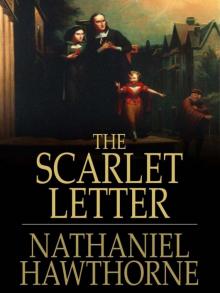 The Scarlet Letter
The Scarlet Letter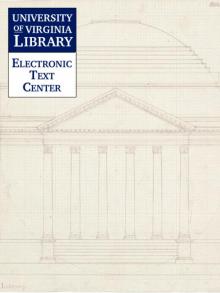 Young Goodman Brown : By Nathaniel Hawthorne - Illustrated
Young Goodman Brown : By Nathaniel Hawthorne - Illustrated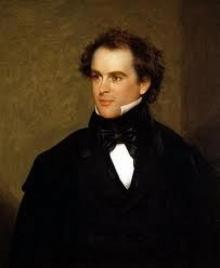 The Birthmark
The Birthmark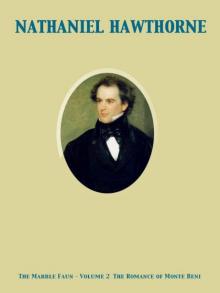 The Marble Faun; Or, The Romance of Monte Beni - Volume 1
The Marble Faun; Or, The Romance of Monte Beni - Volume 1 The Minister's Black Veil
The Minister's Black Veil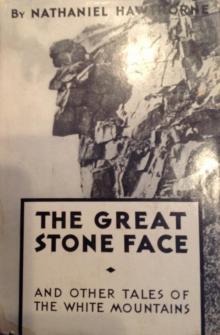 The Great Stone Face, and Other Tales of the White Mountains
The Great Stone Face, and Other Tales of the White Mountains The House of the Seven Gables
The House of the Seven Gables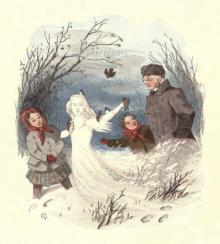 The Snow Image
The Snow Image The Blithedale Romance
The Blithedale Romance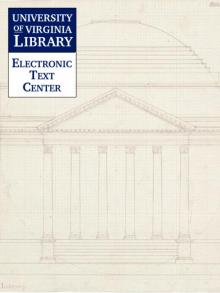 Rappaccini's Daughter: By Nathaniel Hawthorne - Illustrated
Rappaccini's Daughter: By Nathaniel Hawthorne - Illustrated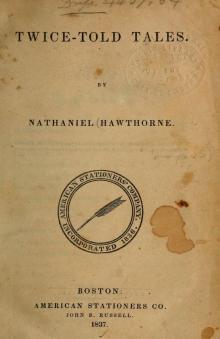 Twice-Told Tales
Twice-Told Tales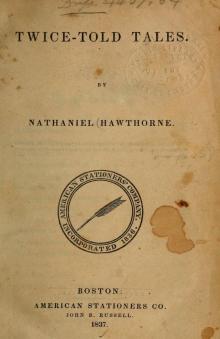 Twice Told Tales
Twice Told Tales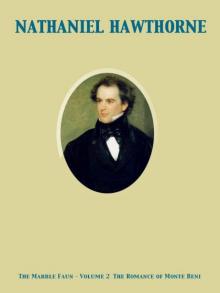 The Marble Faun; Or, The Romance of Monte Beni - Volume 2
The Marble Faun; Or, The Romance of Monte Beni - Volume 2_preview.jpg) Footprints on the Sea-Shore (From Twice Told Tales)
Footprints on the Sea-Shore (From Twice Told Tales)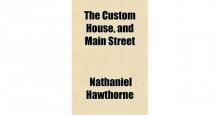 Main Street
Main Street_preview.jpg) The Seven Vagabonds (From Twice Told Tales)
The Seven Vagabonds (From Twice Told Tales) Fanshawe
Fanshawe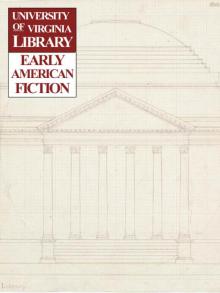 Chippings with a Chisel
Chippings with a Chisel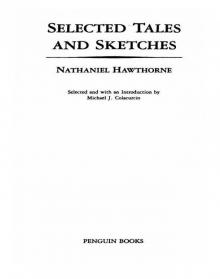 Selected Tales and Sketches
Selected Tales and Sketches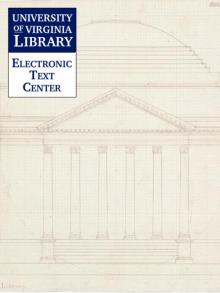 Young Goodman Brown
Young Goodman Brown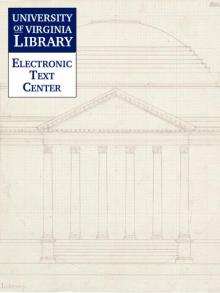 Roger Malvin's Burial
Roger Malvin's Burial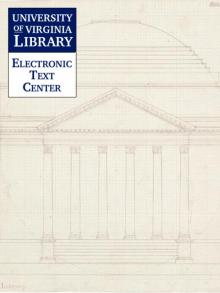 The Prophetic Pictures
The Prophetic Pictures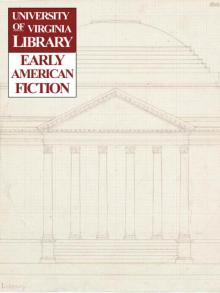 The Village Uncle
The Village Uncle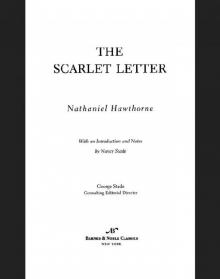 Scarlet Letter (Barnes & Noble Classics Series)
Scarlet Letter (Barnes & Noble Classics Series)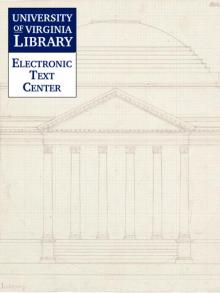 The Procession of Life
The Procession of Life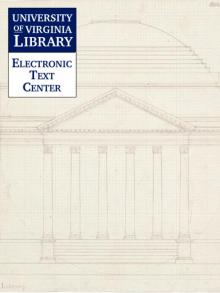 Drowne's Wooden Image
Drowne's Wooden Image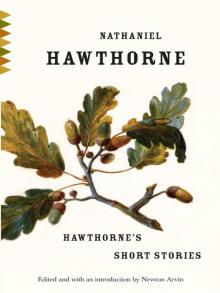 Hawthorne's Short Stories
Hawthorne's Short Stories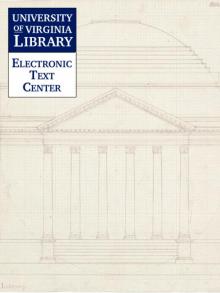 My Kinsman, Major Molineux
My Kinsman, Major Molineux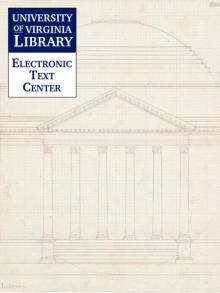 Legends of the Province House
Legends of the Province House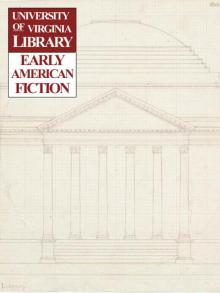 Foot-Prints on the Sea-Shore
Foot-Prints on the Sea-Shore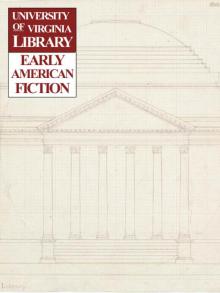 The Haunted Quack
The Haunted Quack Tanglewood Tales
Tanglewood Tales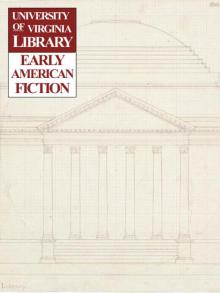 The Seven Vagabonds
The Seven Vagabonds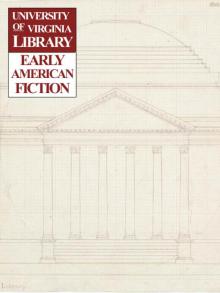 Mosses from an Old Manse, Volume 2
Mosses from an Old Manse, Volume 2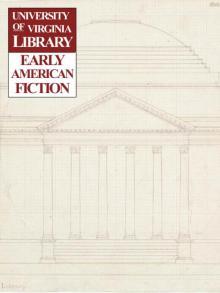 The Canterbury Pilgrims
The Canterbury Pilgrims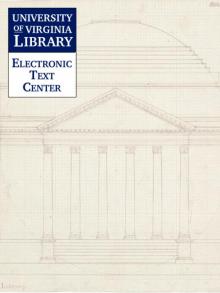 Wakefield
Wakefield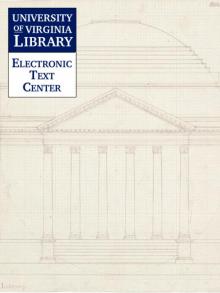 The Gray Champion
The Gray Champion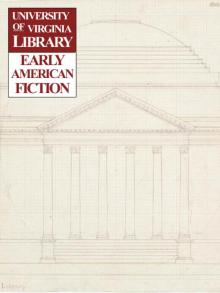 The White Old Maid
The White Old Maid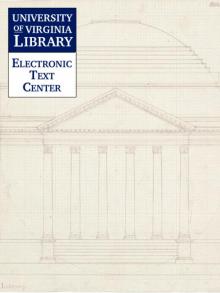 The Snow-Image: A Childish Miracle
The Snow-Image: A Childish Miracle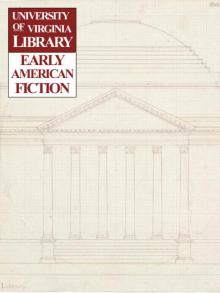 The Gentle Boy
The Gentle Boy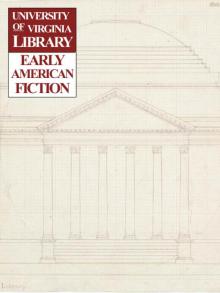 Mr. Higginbotham's Catastrophe
Mr. Higginbotham's Catastrophe![The Threefold Destiny: A Fairy Legend, by Ashley Allen Royce [pseud.] Read online](http://i1.bookreadfree.com/i2/04/10/the_threefold_destiny_a_fairy_legend_by_ashley_allen_royce_pseud__preview.jpg) The Threefold Destiny: A Fairy Legend, by Ashley Allen Royce [pseud.]
The Threefold Destiny: A Fairy Legend, by Ashley Allen Royce [pseud.]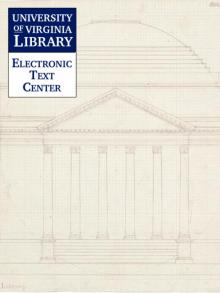 Lady Eleanore`s Mantle
Lady Eleanore`s Mantle The Great Carbuncle
The Great Carbuncle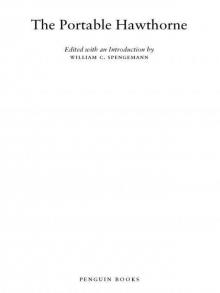 The Portable Hawthorne (Penguin Classics)
The Portable Hawthorne (Penguin Classics) True Stories from History and Biography
True Stories from History and Biography